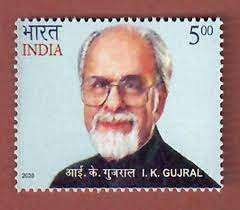Muhammad Iqbal passed away on 21st April 1938 in Lahore, British India (now in Pakistan).
Muhammad Iqbal, often referred to as Allama Iqbal, was a renowned poet, philosopher, and politician in British India who is widely regarded as having inspired the Pakistan Movement. Born on November 9, 1877, in Sialkot, British India (now in Pakistan), Iqbal was educated in both the East and the West, earning degrees from Government College Lahore and the University of Cambridge.
His poetry, written in Urdu and Persian, reflects a deep spiritual and philosophical exploration, often focusing on themes of self-discovery, national identity, and the revitalization of the Islamic world. Some of his notable works include "Asrar-e-Khudi" (Secrets of the Self), "Bang-e-Dra" (The Call of the Marching Bell), and "Zabur-e-Ajam" (Persian Psalms).
Iqbal's vision for a separate Muslim state eventually culminated in the creation of Pakistan in 1947, though he passed away in 1938, well before its establishment. His ideas and poetry played a significant role in shaping the ideology of Pakistan and continue to inspire people across the world. He is widely respected as the national poet of Pakistan.









